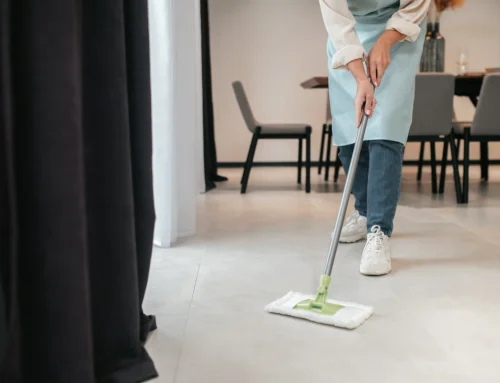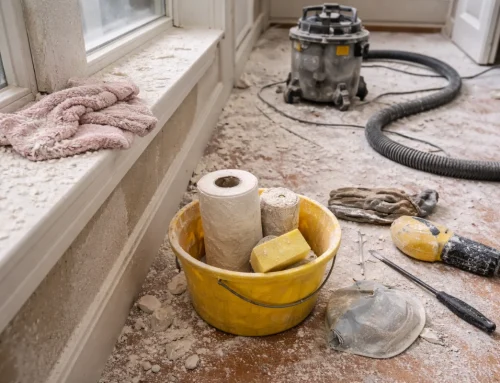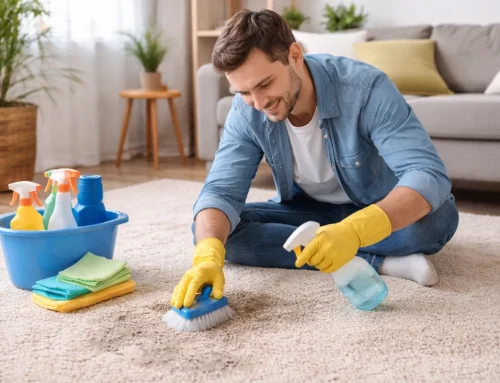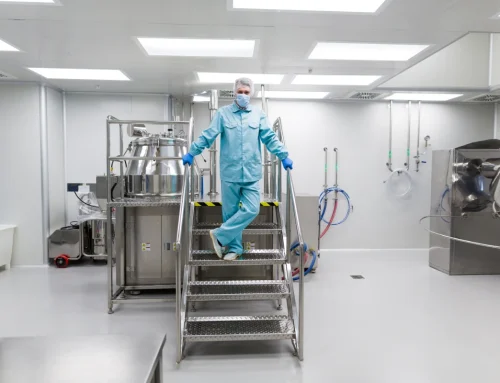Cleaning floors in a veterinary clinic is more than making the place look good. It’s about fostering a safe and clean environment for both pets and their owners. A clean clinic decreases the potential for infection, removes unpleasant smells, and maintains professionalism. In this guide, expert cleaners at Interworld Cleaning Company will explain how to clean floors properly in a veterinary clinic and how to deal with common hygiene problems. We also help you learn how to pick the best cleaning products and services for your clinic to keep your patients and their owners safe and satisfied.
Why Proper Floor Cleaning is Important in a Veterinary Clinic?
Cleaning the clinic is very important for hygiene. Many types of animals, from dogs and cats to exotic pets, visit veterinary clinics, and each one can bring different germs and bacteria. As floors are high-contact areas, they can easily get dirty from animal waste and bodily fluids. It’s essential to clean them frequently and properly. But some cleaning chemicals might be dangerous for some types of animals. Thus, to clean the clinic without harming the animals, when cleaning a veterinary clinic, it is also important to use the right floor cleaning products suitable for pets.
Additionally, it’s important to choose non-toxic, pet-friendly disinfectants that are proven to eliminate harmful pathogens without leaving residues that could harm animals. Specialized cleaners designed for veterinary use can effectively sanitize floors while ensuring the safety of both the animals and the humans in the clinic. A regular floor cleaning and sanitizing plan with these appropriate products can be really helpful to prevent the spread of contagious diseases, protect the clinic’s reputation, and create a welcoming atmosphere for clients.
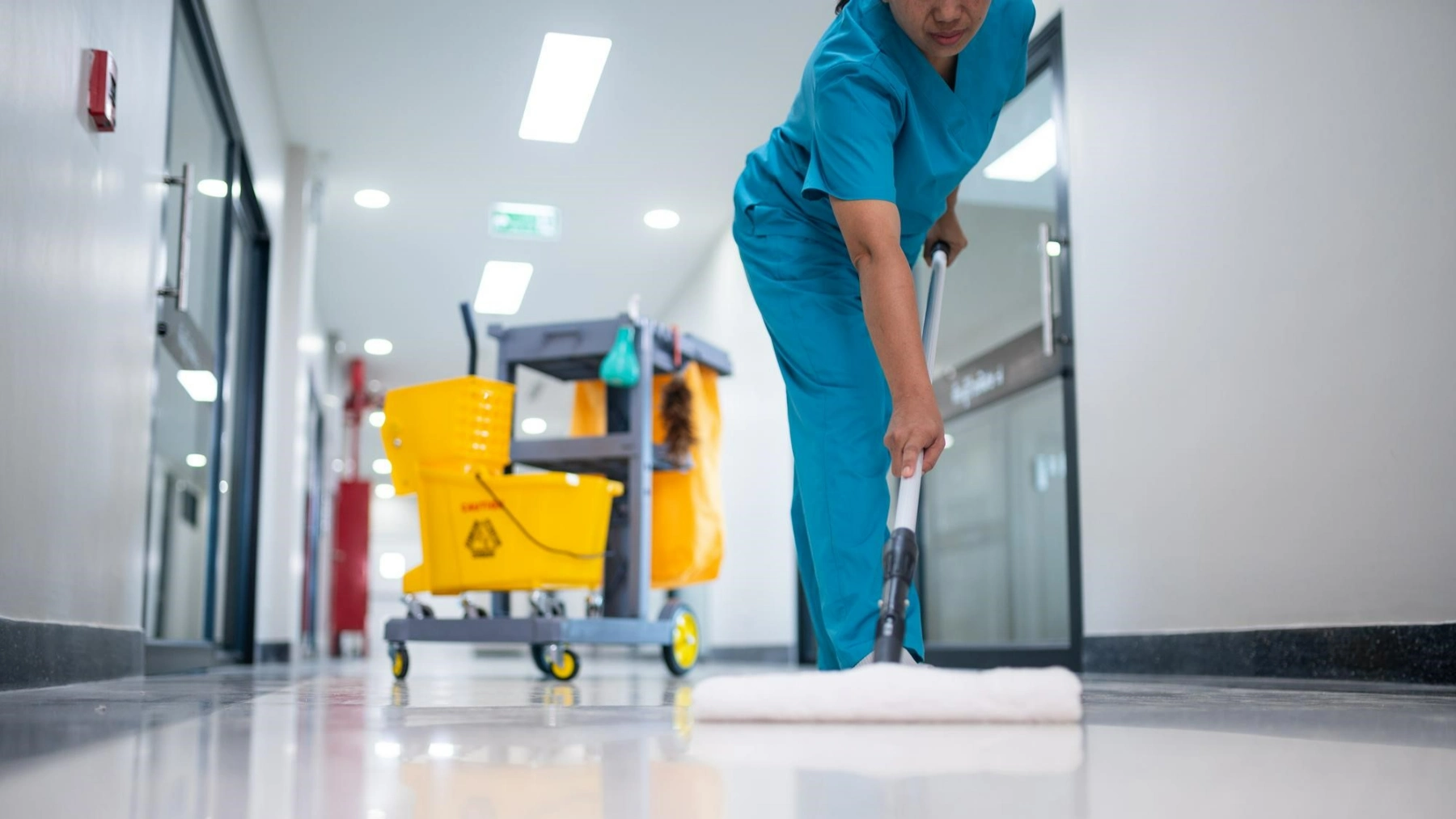
Steps to Clean Floors the Right Way
-
Get Rid of Loose Stuff
Before mopping or deep cleaning, sweep or vacuum the floor to get rid of dirt, pet hair, and other debris. Pet hair is common in vet clinics, and it’s important to remove it to stop it from sticking to the floor. Use a vacuum with a HEPA filter if needed to remove all pet hair and dander.
-
Pick Safe Cleaning Products
Use cleaners made for vet clinics. They kill germs but won’t harm animals. Avoid strong chemicals unless they’re proven to be pet-safe. If unsure, ask a pro cleaning service.
-
Disinfect After Sweeping
Use a disinfectant that kills common germs like parvo or ringworm. Don’t forget door handles and counters those need cleaning too.
-
Mop the Floor
Use a damp mop to clean the floors. Mop in sections to make sure you clean everything. You should rinse the mop often to stop dirt from spreading. And don’t use too much water, because it can get into cracks and cause mold or mildew.
-
Let It Dry
Make sure floors dry before anyone walks on them. Wet floors are slippery and unsafe. Dry floors also mean the disinfectant worked.
-
Keep It Up
Clean often. Don’t wait until it looks bad. Regular cleaning keeps things safe and cuts down on deep cleaning later.
Where Does Dirt Come From?
Dirt in a veterinary clinic can come from many sources. One of the main contributors is the pets themselves. When animals visit the clinic, they can bring in dirt, hair, and other things from outside, such as leaves, grass, or mud. Pets with long fur or those who enjoy being outdoors tend to shed more hair, which can quickly accumulate on floors and furniture. Additionally, their paws can carry moisture or dirt from outside, especially if they’ve just been out for a walk or to the bathroom.
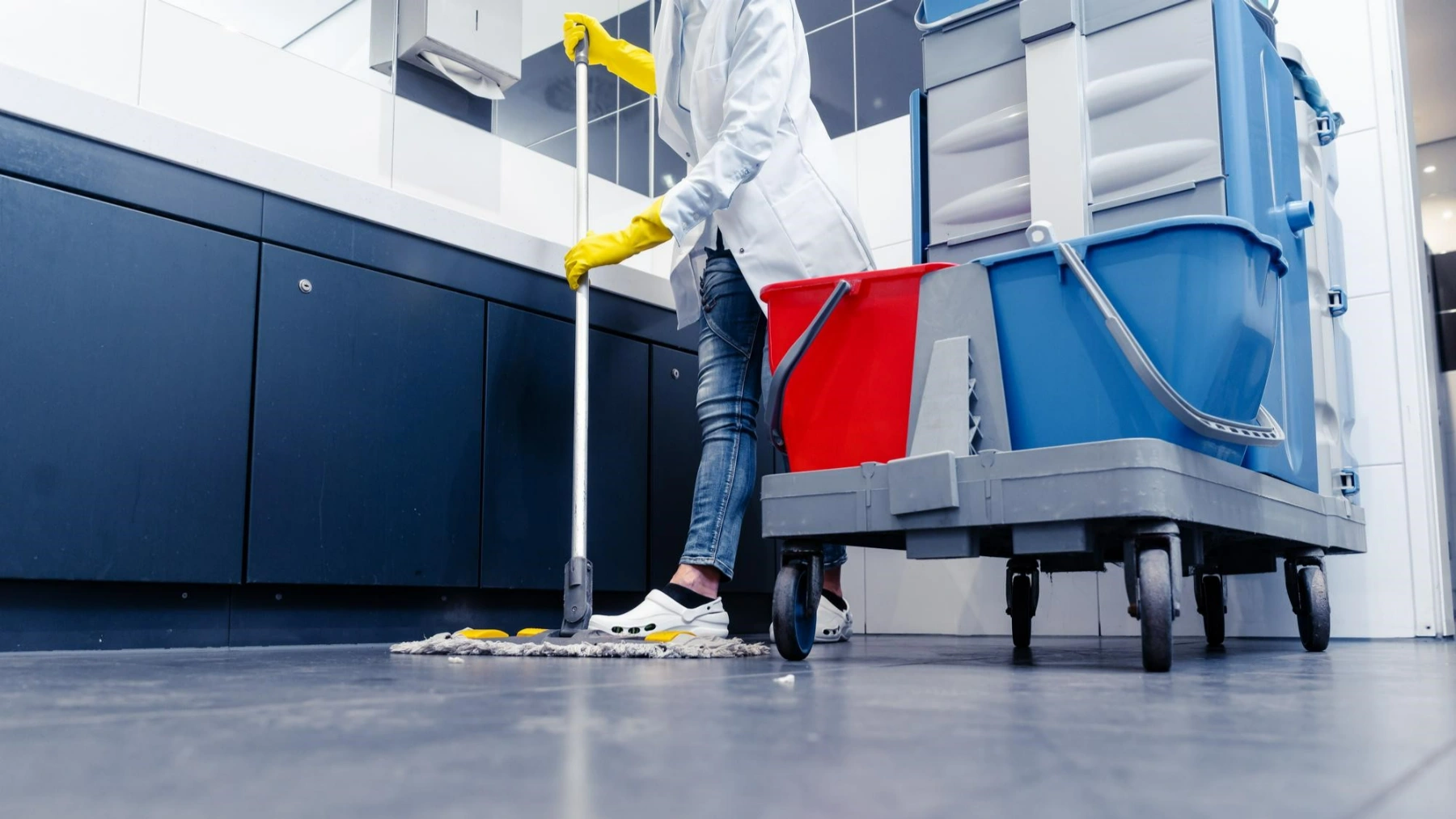
Pet owners also bring in dirt when they enter the clinic. The shoes they wear carry dirt from the outside, especially on rainy or snowy days. Pet hair or dander from the pet owner’s home may also get transferred into the clinic, adding to the mess.
The equipment used in the clinic can also contribute to dirt buildup. Items like grooming tools, pet carriers, and bedding can pick up dirt or hair from animals. Even the staff members, who care for the animals, can bring in dirt or pet hair on their clothing and equipment if they don’t clean up properly.
The design of the clinic itself can also play a role in how much dirt accumulates. High-traffic areas, like hallways, waiting rooms, and exam rooms, see a lot of foot movement and are more likely to get dirtier. Additionally, the air conditioning or heating system can circulate dust and pet dander, causing it to settle on surfaces and floors.
Why Hire a Vet Clinic Cleaning Service?
Cleaning takes time and keeps staff from helping pets. A pro cleaning team can take over and do it right. A trusted veterinary office cleaning service in Baltimore, MD, can keep your clinic clean, safe, and up to code.
Trust Interworld Cleaning for Your Vet Clinic!
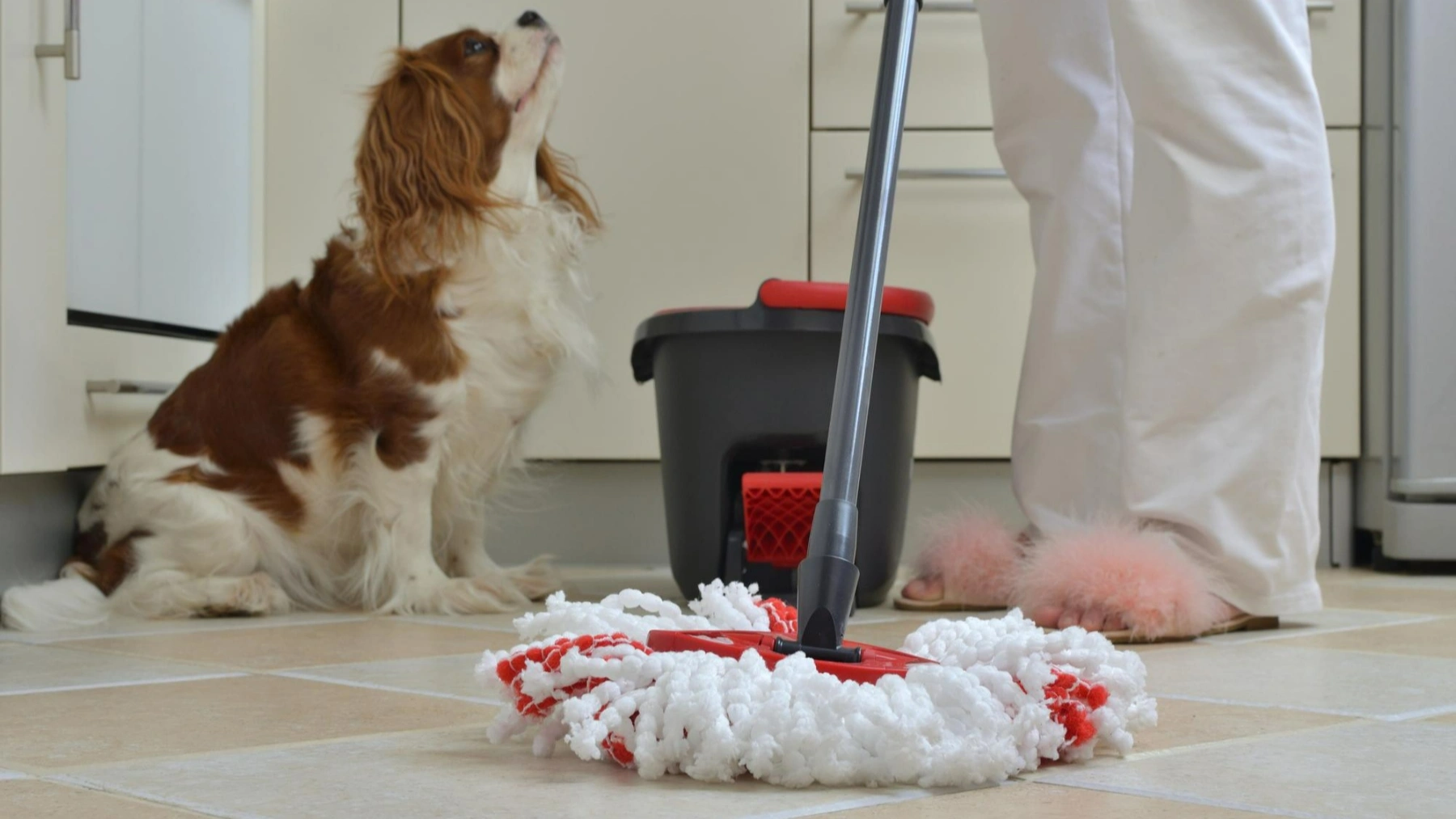
A clean space means healthy pets and happy owners. When it comes to maintaining a veterinary clinic, hygiene and cleanliness are essential in ensuring the safety and well-being of both animals and humans. Interworld commercial cleaning company takes care of all aspects of your clinic’s cleanliness, from scrubbing floors to disinfecting surfaces and handling pest control.
Our team of experts is dedicated to providing a thorough, reliable cleaning service that meets the unique needs of a veterinary setting. By letting the professionals take care of these important tasks, you can focus on what matters most taking care of the animals. We use the best cleaning products and techniques to ensure a sanitized, safe environment that fosters the health of your patients and creates a welcoming atmosphere for pet owners. Call us today to book your commercial cleaning service and experience the difference a clean clinic can make!
